Tooth Extractions – Denton, TX
Removing Problem Teeth for Better Oral Health

Dr. Ahir carefully evaluates our patients’ needs so that we can recommend the best treatment plan for their smiles. When that includes tooth extraction, our team makes your comfort our #1 priority and starts by explaining how the procedure works and the benefits you can expect, and we’ll answer any questions you may have. If you think you may need a tooth extraction in Denton or want to know more, don’t hesitate to contact us. We’re always here to help!
Why Choose Prime Dentistry for Tooth Extractions?
- Dedicated Focus on Patient Comfort
- Committed Dental Team That Remains by Patients’ Sides
- Dental Technology Ensures Positive Experiences
When Are Tooth Extractions Necessary?
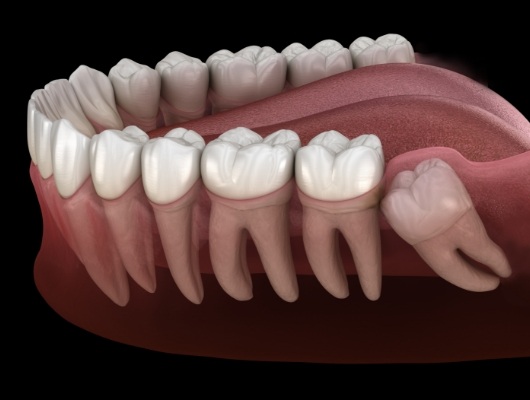
Unfortunately, many factors can lead to tooth extraction, including:
- As preliminary preparation for dentures
- To treat overcrowding, particularly before orthodontic treatment
- Severe damage from a cavity or fracture that destroys most of a tooth, leaving it unable to support a dental filling or crown
- Wisdom teeth that are at risk for causing other problems
- Advanced stages of gum disease in which the teeth have become loose
Different Types of Tooth Extractions
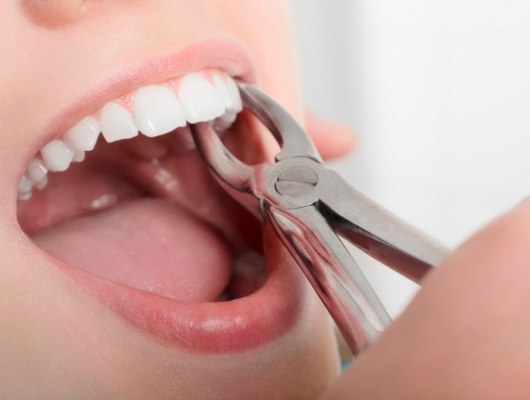 Read More
Read More
Wisdom Tooth Extraction
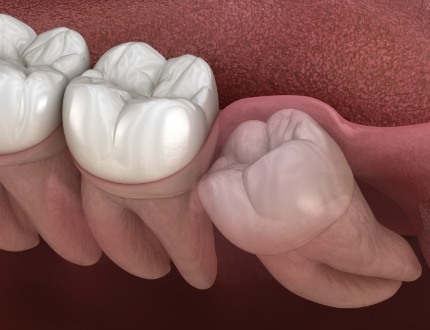
Many patients aren’t sure why they need wisdom tooth extractions, especially if they aren’t experiencing pain. However, our goal is not only to treat dental problems but also to prevent them! Wisdom teeth have a good chance of causing serious problems down the road such as infections, sinus problems, cysts, and crowding issues. Removing these teeth is a proactive way to keep your smile healthy.
Multiple Tooth Extractions
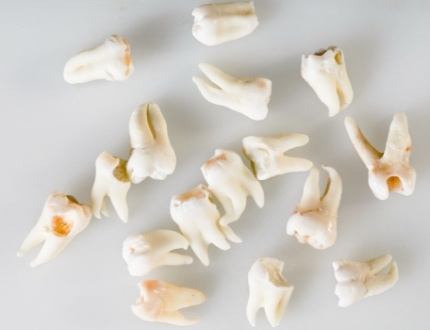
Due to factors like extensive cavities, accidents, genetics, or overcrowding, it’s not uncommon to need more than one extraction at a time. Depending on your situation, we’ll discuss any post-operative needs you may have such as tooth replacement options (i.e., dental implants, bridges, or dentures).
Extraction Site Preservation
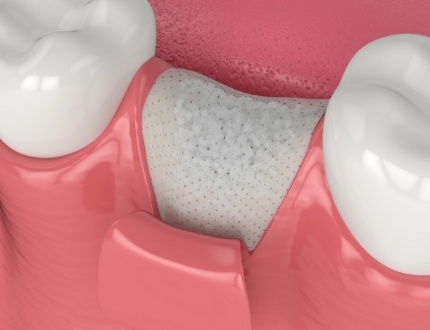
When possible, we often recommend dental implants after tooth loss because they provide so many benefits. But since extractions can leave the jawbone too weak or thin to support a dental implant, we may recommend extraction site preservation. Done at the same time as an extraction, this procedure strengthens the jawbone with grafting material to prepare it for a dental implant later on.
Post-Op Care for Tooth Extractions

Your recovery process is very important to us, and we’ll spend time reviewing the best way to care for your extraction site at home, including:
- Taking time off to rest (usually 2-3 days)
- Eating soft foods and chewing on the opposite side of your mouth
- Taking pain medication as directed
- Avoiding hot or carbonated beverages and not using a straw for the first 4-5 days
- Continuing to brush and floss, but not directly brushing the extraction area itself
- Calling us immediately with any questions or concerns
Tooth Extractions FAQs
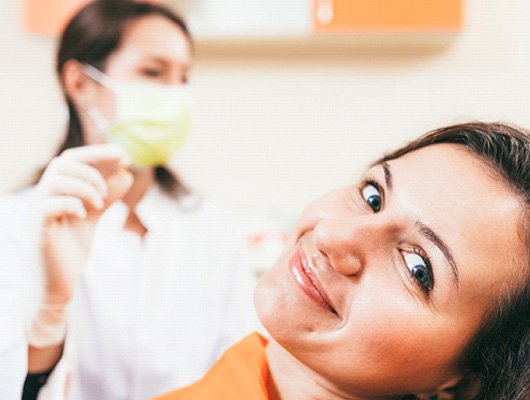
Tooth extractions are always a little bit nerve-wracking for patients, especially if it’s their first time dealing with one. However, they’re really just like any other dental treatment—we’ll take every precaution to ensure that you won’t feel anything during the procedure and that you’re as comfortable as possible for the entire time.
That said, it’s perfectly normal to have questions about the treatment. If you want to know more, here’s some information about tooth extractions you may find comforting.
Read MoreWhat’s the Difference Between Tooth Extractions and Wisdom Tooth Surgery?
While both procedures involve removing a tooth, the average tooth extraction is typically much less invasive than a wisdom tooth surgery. Wisdom teeth often emerge at strange angles, or may not sprout properly at all. This is why surgery is usually necessary to remove them.
A tooth extraction is almost always done on a tooth that has fully emerged, meaning that the process of removing it is considerably simpler. If you’ve ever had a wisdom tooth removed, you should take comfort in the fact that this will likely be easier to manage.
Can I Leave the Space Empty After a Tooth Extraction?
If a tooth is removed from somewhere that people can’t see, patients are often tempted to just leave the space empty. Unfortunately, this is a mistake. Even missing a single tooth can seriously compromise your ability to chew properly, which means that you aren’t going to get all the nutrients that you can from the food that you eat.
Missing teeth also causes the other teeth to be pulled out of alignment. Think of it like a tightly packed bookshelf—taking one out causes the others surrounding it to fall over, which in turn pushes the books next to them out of place. For these reasons, we strongly recommend replacing a tooth that has been removed with either a bridge or a dental implant.
What Can I Do to Speed Up the Healing Time?
If you want to heal quickly, you should simply relax and don’t do anything to get in the way of the body doing its job. First of all, you should listen carefully to the instructions we give you regarding the gauze. Keep it in place, and refrain from touching the wound with your tongue or hands. For the first 24 hours, you should also avoid strenuous exercise.
There’s also dry socket, which you should make an effort to avoid as much as possible. This happens when suction in the mouth pulls the clot out of place. For this reason, you should refrain from smoking, spitting excessively, or using a straw during the healing process.
How Should I Prepare for My Tooth Extraction?
What’s just as important as properly managing aftercare is making sure that you’re prepared before the procedure. We’ll talk with you extensively and answer any questions you have at your consultation. Generally, we’ll let you know if it’s necessary to avoid food before your treatment—this will depend on whether you are being sedated or not. You should also arrange to have someone drive you to and from your appointment for this reason. Be sure to take note of any instructions we give you, and follow them carefully.





New Patient 1st Visit
Second Opinions

